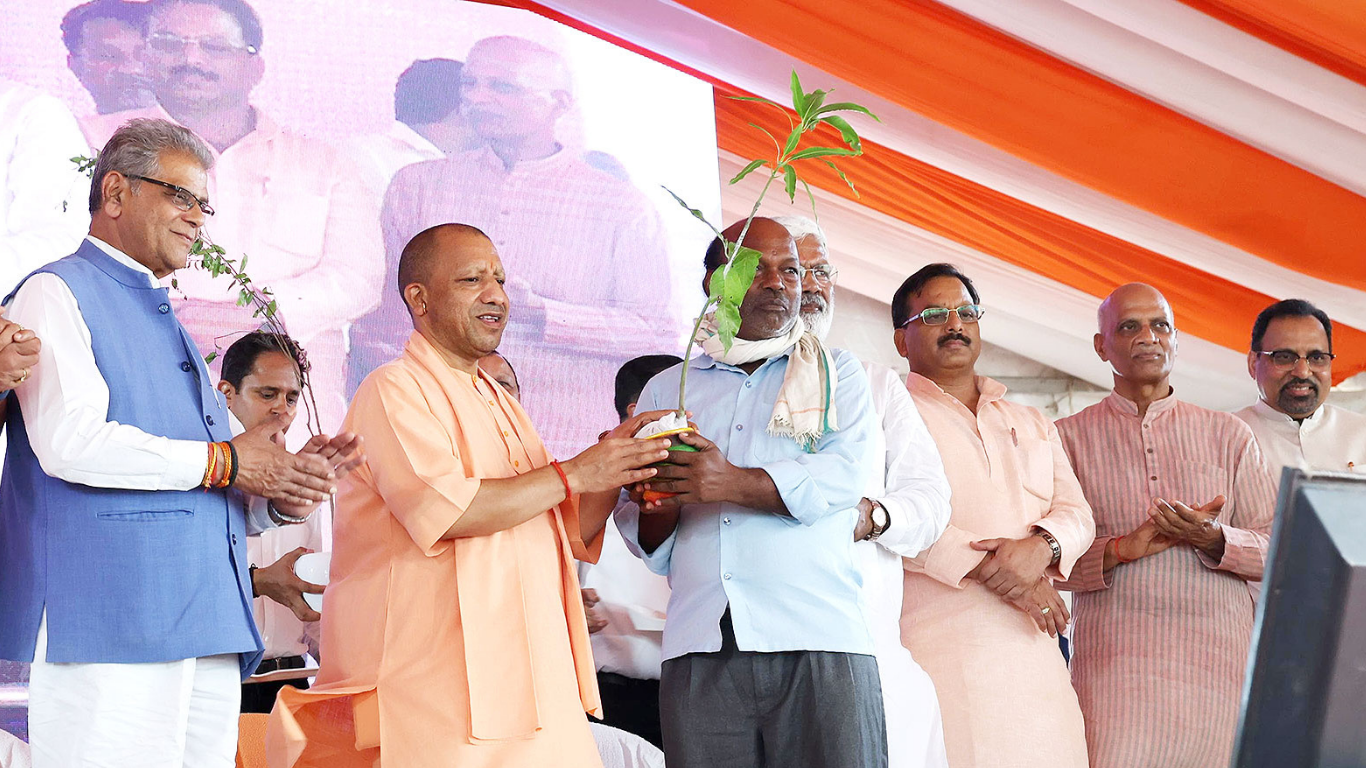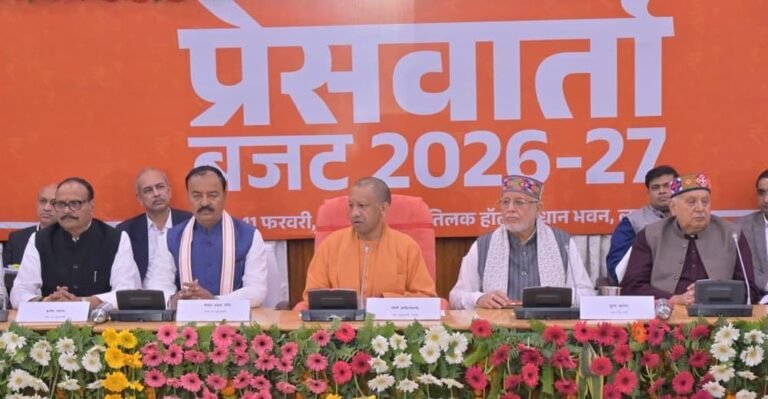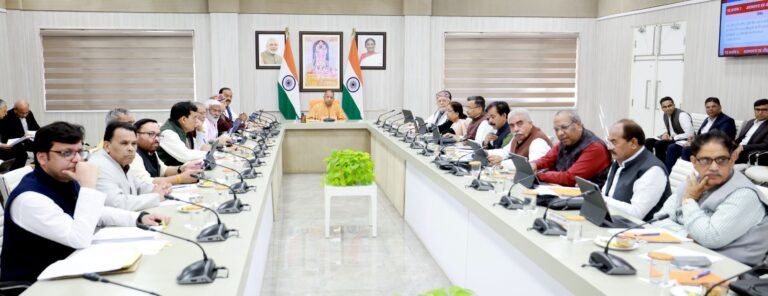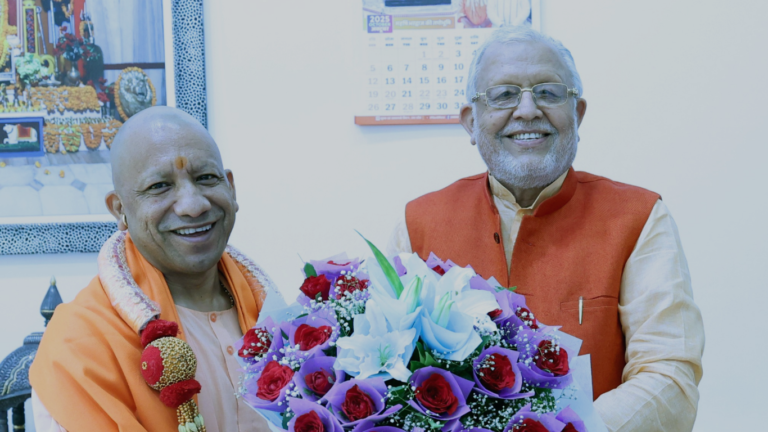
Ayodhya — In a groundbreaking move, Uttar Pradesh has become the first state in India to roll out a Carbon Credit Finance Scheme aimed at helping farmers earn extra income while protecting the environment. Chief Minister Yogi Adityanath announced the initiative during a statewide tree-planting drive in Ayodhya Dham, marking a significant step toward sustainable farming and economic growth. The scheme, launched in collaboration with The Energy and Resources Institute (TERI), has already distributed ₹49.55 lakh to 244 farmers and plans to support 401 more with ₹25.45 lakh in the next phase. Here’s the latest on how this program is transforming lives and landscapes in Uttar Pradesh.
A New Income Source for Farmers
The Carbon Credit Finance Scheme encourages farmers to adopt eco-friendly practices like agroforestry, where trees are planted alongside crops. These trees absorb carbon dioxide, helping fight climate change, and farmers earn carbon credits based on the amount of carbon their land sequesters. Each credit, equivalent to one ton of carbon dioxide removed, can be sold to companies aiming to offset their emissions. In Uttar Pradesh, farmers who registered their trees five years ago are now receiving payments at $6 per tree, a unique model in India. This extra income is a game-changer for small and marginal farmers, many of whom struggle with rising costs and unpredictable weather. The scheme not only boosts their earnings but also improves soil health and water retention, making farms more resilient.
How the Scheme Works
The process is straightforward but carefully monitored. Farmers register their agroforestry plots with the state’s forest department, which works with TERI to verify the carbon stored through satellite monitoring and on-ground checks. Once verified, farmers receive carbon credits that can be sold on voluntary carbon markets. The Uttar Pradesh government has streamlined this process to ensure transparency, with payments directly reaching farmers’ accounts. The initiative aligns with India’s goal of carbon neutrality by 2070, and Uttar Pradesh is leading the way by making it accessible for smallholder farmers. However, some challenges remain, like delays in verification and ensuring fair prices, as middlemen can sometimes take a large cut. Efforts are underway to address these issues with better technology and farmer cooperatives.
Early Success and Farmer Stories
The scheme’s early success is already making waves. In districts like Ayodhya and Gorakhpur, farmers are sharing stories of how the extra income has helped them. Ram Lal, a farmer from Ayodhya, said, “I planted trees on my field five years ago, and now I’ve received ₹20,000. It’s helped me buy better seeds and pay for my kids’ school fees.” Posts on X echo this excitement, with users praising Chief Minister Yogi Adityanath for turning Uttar Pradesh into a green economy leader. The program’s focus on agroforestry also ties into the state’s massive tree-planting campaigns, which have seen millions of trees planted across rural areas. While some farmers report waiting for payments due to verification delays, the overall mood is hopeful, with many seeing this as a step toward a sustainable future.
Future Plans and Expansion
The Uttar Pradesh government is not stopping here. Plans are in place to expand the scheme across all districts, targeting thousands more farmers. The next phase will distribute ₹25.45 lakh to 401 additional farmers, with a focus on including marginalized groups and small landholders. The state is also exploring digital tools like mobile apps to simplify registration and monitoring, making it easier for farmers to join. Experts say the scheme could inspire other states, as agriculture accounts for nearly 17% of India’s greenhouse gas emissions, especially from rice farming. By promoting practices like direct-seeded rice and reduced tillage alongside agroforestry, Uttar Pradesh aims to cut emissions while boosting farmer incomes. The government is also working to ensure payments are timely and middlemen don’t eat into farmers’ earnings, a common issue in carbon markets.
Why This Matters
Uttar Pradesh’s Carbon Credit Finance Scheme is a bold move that blends environmental care with economic growth. It empowers farmers to play a key role in fighting climate change while giving them a financial boost. As the first state to implement such a program, Uttar Pradesh is setting a model for others to follow. The scheme’s success in Ayodhya and beyond shows that sustainable farming can be profitable, encouraging more farmers to join. With plans for statewide expansion and better technology, the initiative promises to transform rural livelihoods and contribute to India’s climate goals. For now, farmers like Ram Lal are proof that small steps, like planting a tree, can lead to big rewards for both their wallets and the planet.



